Abstract
The present paper compares behavior-analytic and cognitive treatments of the concept of psychological history with regard to its role in current action. Both treatments take the position that the past bears some responsibility for the present, and are thereby obligated to find a means of actualizing the past in the present. Both do so by arguing that the past is brought to bear in the present via the organism. Although the arguments of the two positions differ on this issue, neither provides a complete account. An unconventional treatment of psychological history is proposed, the logic of which is exemplified in anthropological, biological, and psychological perspectives. The unconventional treatment in psychological perspective holds that (a) the organism's interaction with its environment, not the organism itself, changes with experience; and (b) the past interactions of an organism exist as, and only as, the present interactions of that organism. This solution to the problem of psychological history provides obligations and opportunities for analysis that are not available when the more conventional positions of cognitivism and behavior analysis are adopted.
Keywords: psychological history, history of reinforcement, memory storage
Full text
PDF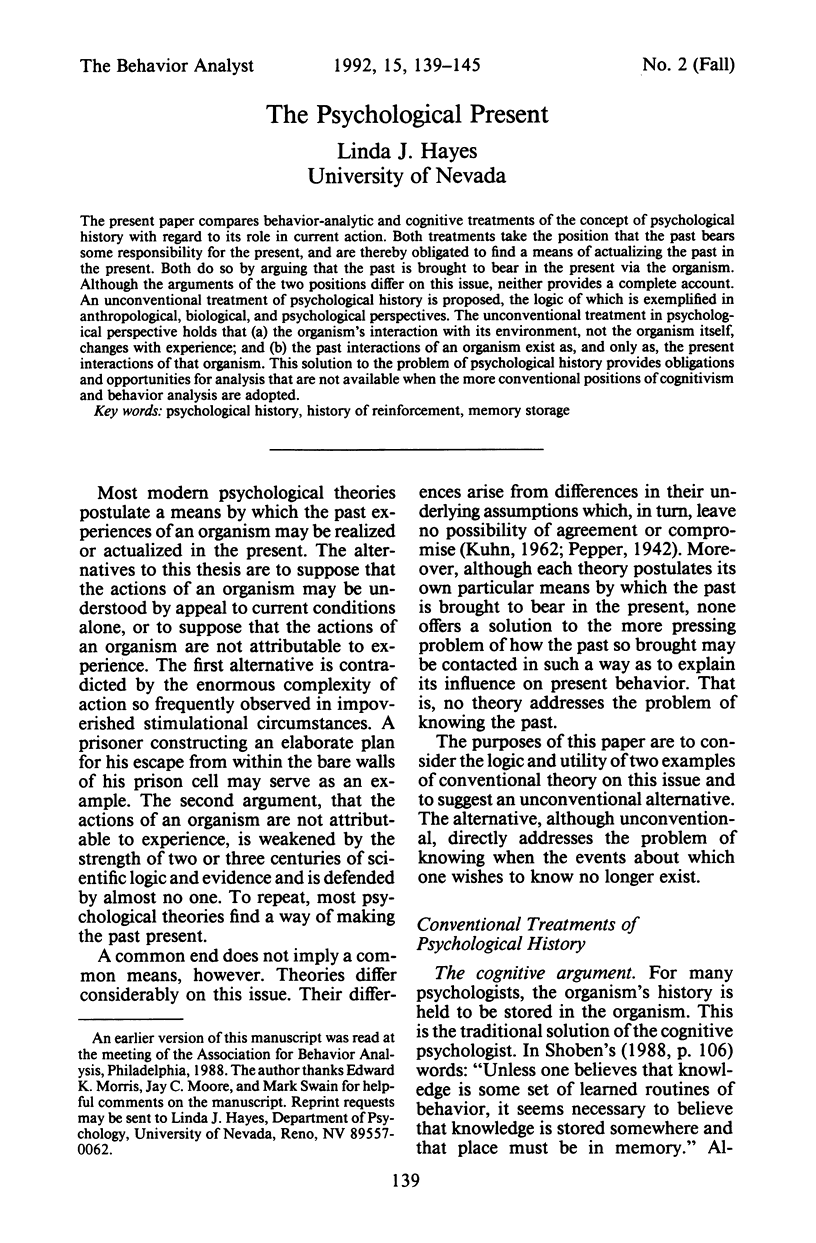
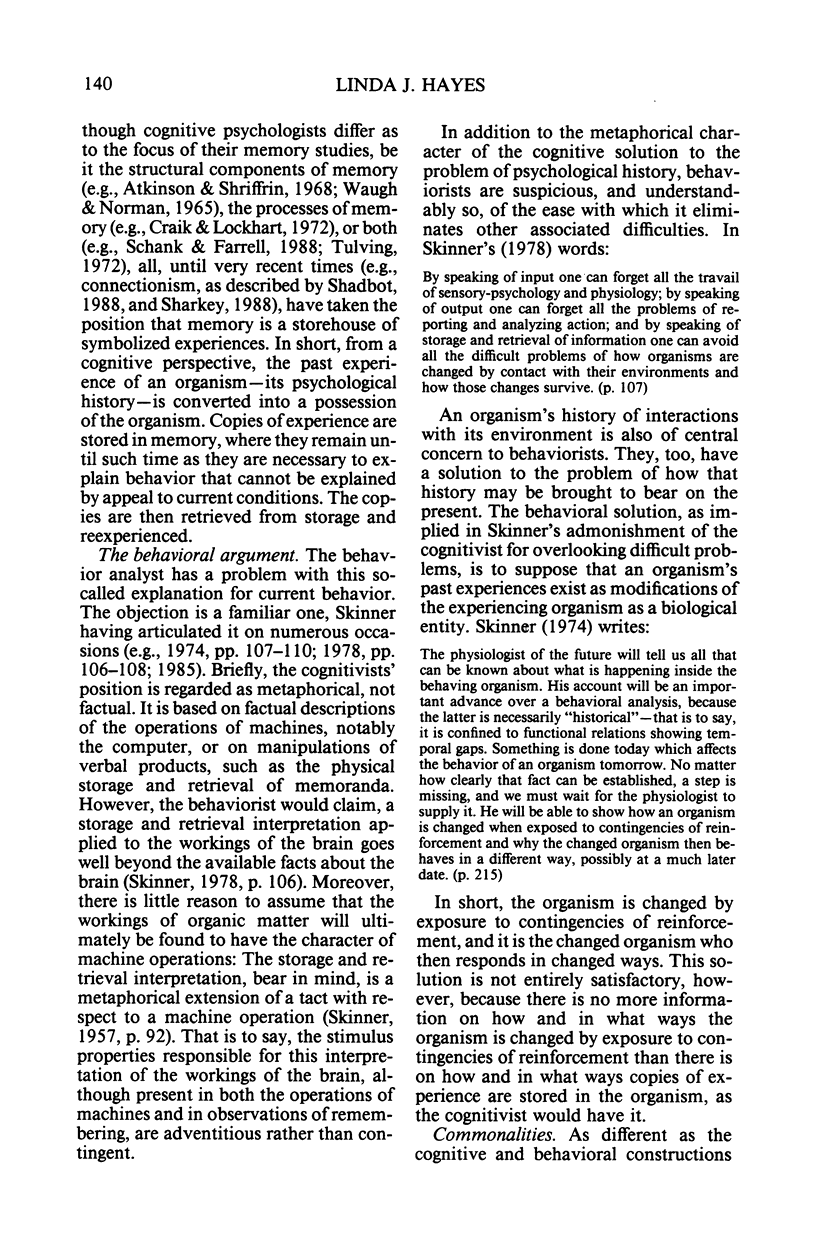
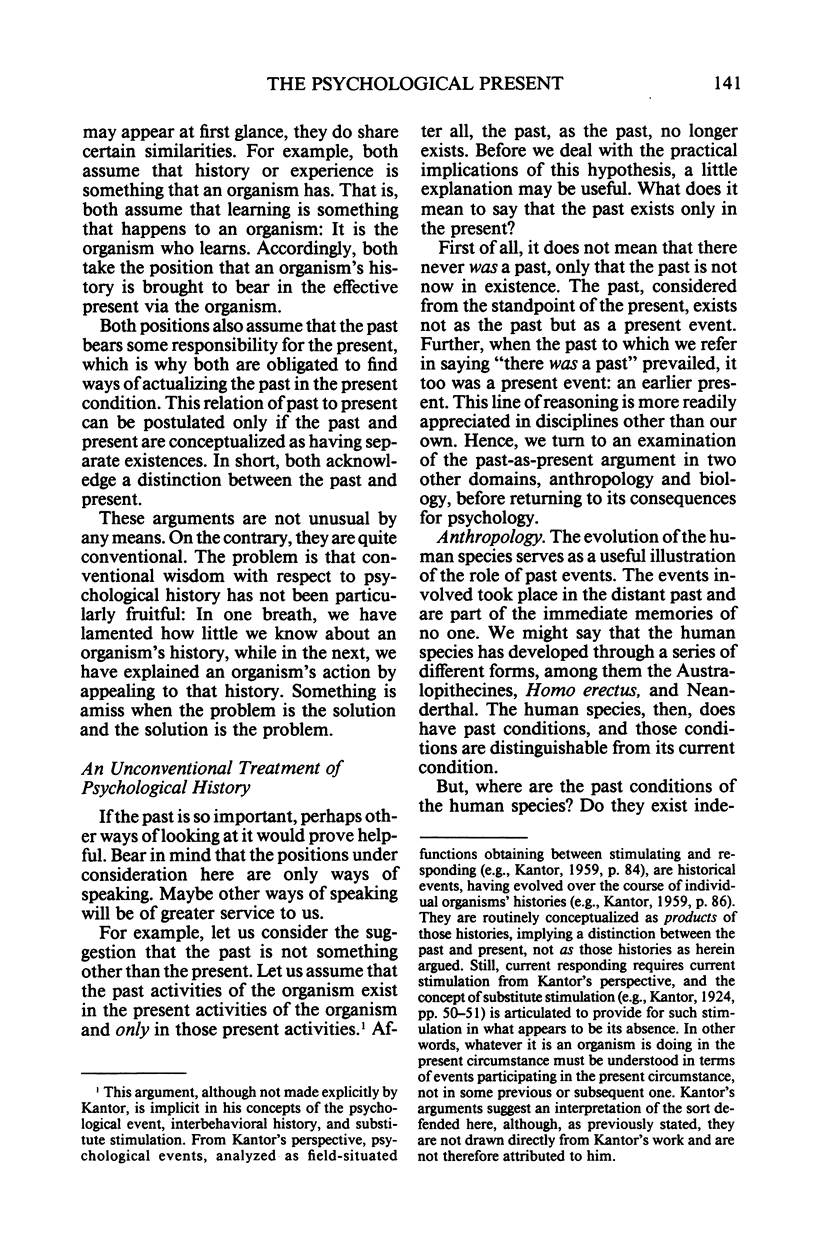

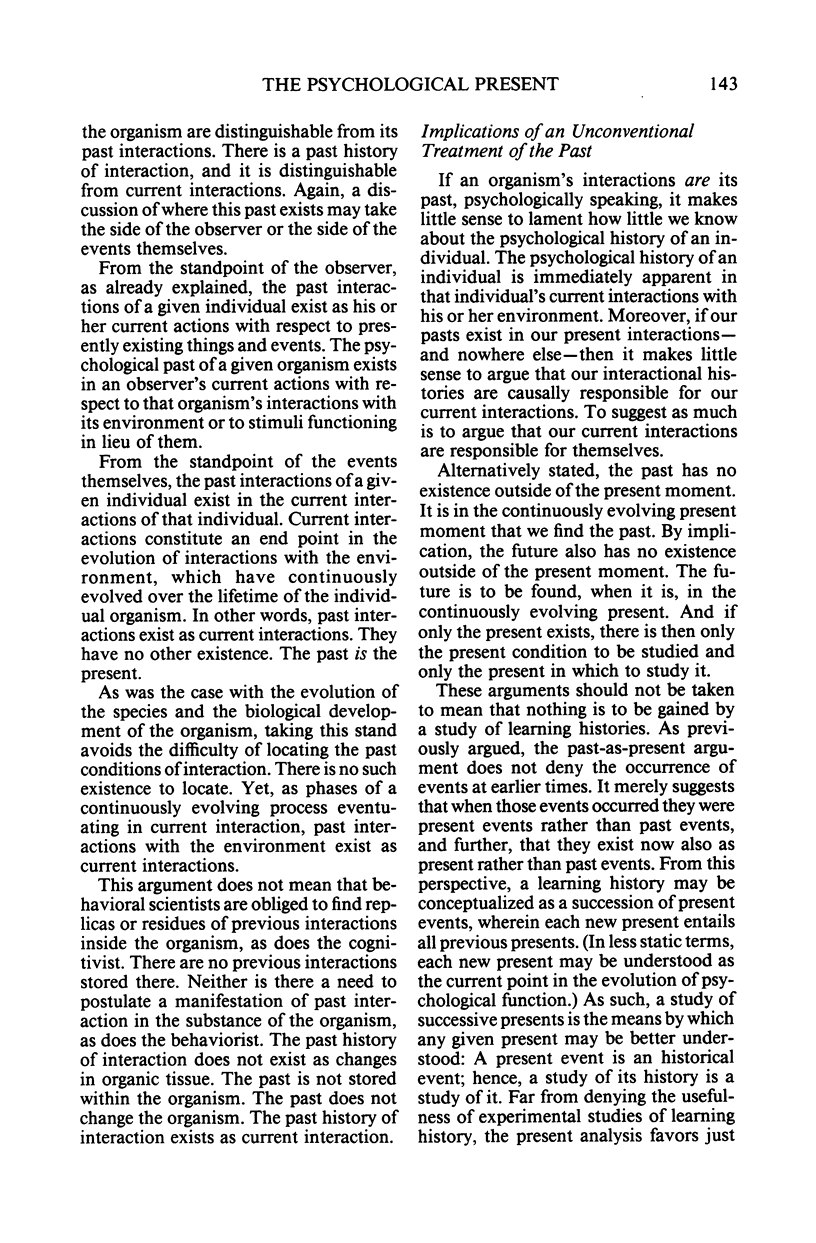
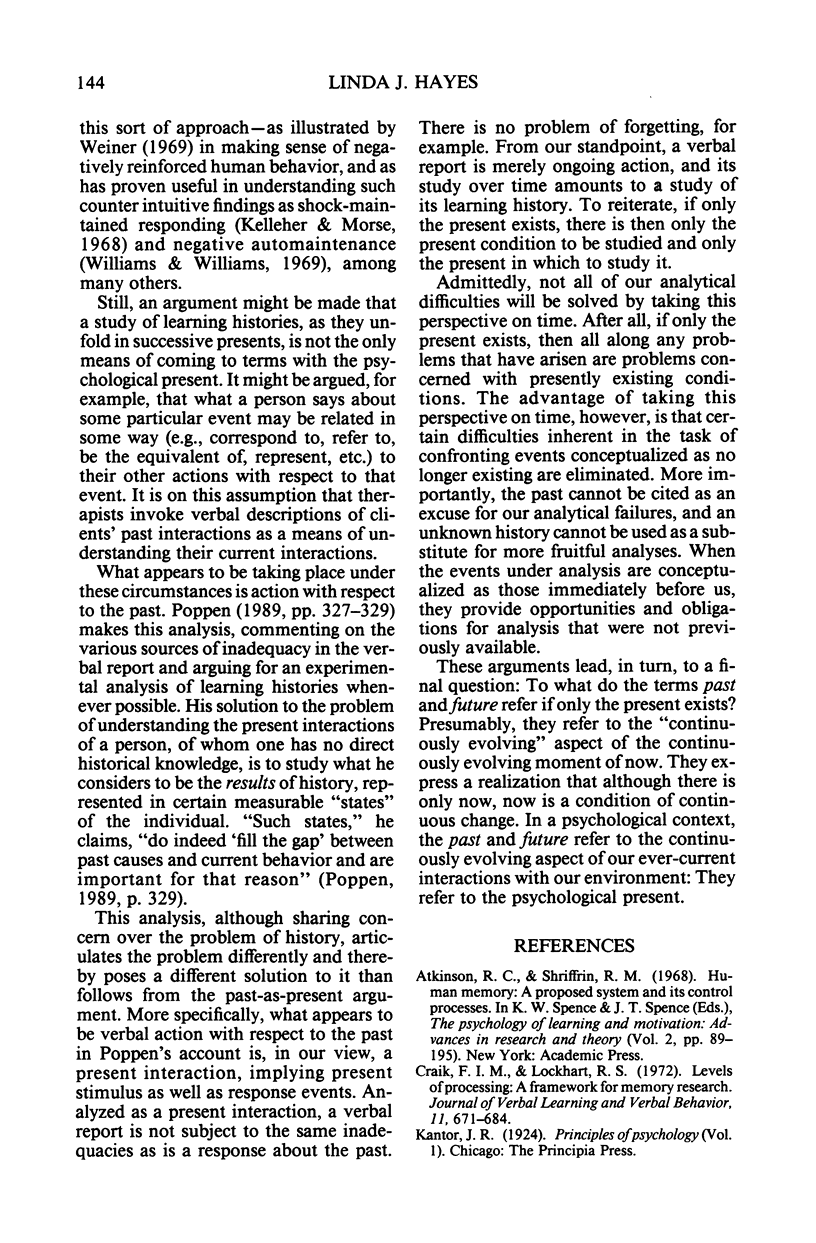
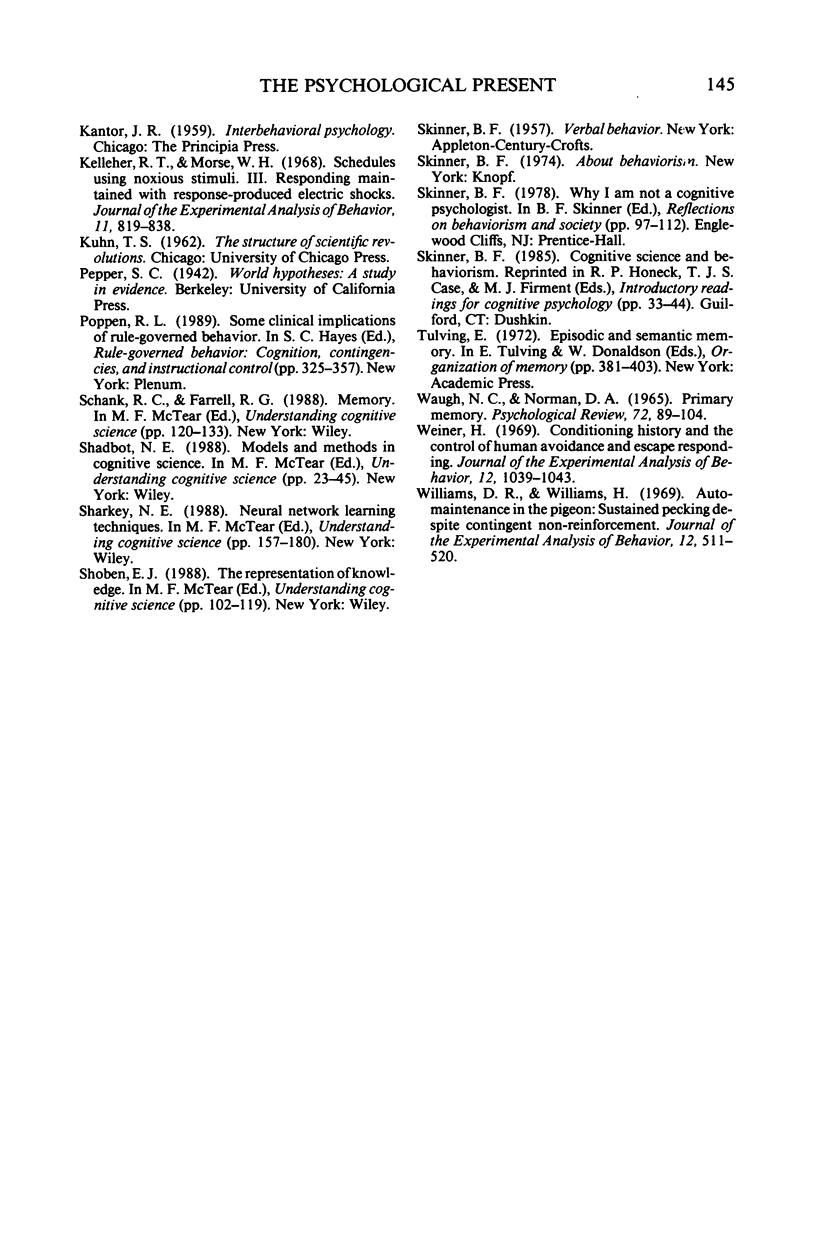
Selected References
These references are in PubMed. This may not be the complete list of references from this article.
- Kelleher R. T., Morse W. H. Schedules using noxious stimuli. III. Responding maintained with response-produced electric shocks. J Exp Anal Behav. 1968 Nov;11(6):819–838. doi: 10.1901/jeab.1968.11-819. [DOI] [PMC free article] [PubMed] [Google Scholar]
- WAUGH N. C., NORMAN D. A. PRIMARY MEMORY. Psychol Rev. 1965 Mar;72:89–104. doi: 10.1037/h0021797. [DOI] [PubMed] [Google Scholar]
- Weiner H. Conditioning history and the control of human avoidance and escape responding. J Exp Anal Behav. 1969 Nov;12(6):1039–1043. doi: 10.1901/jeab.1969.12-1039. [DOI] [PMC free article] [PubMed] [Google Scholar]
- Williams D. R., Williams H. Auto-maintenance in the pigeon: sustained pecking despite contingent non-reinforcement. J Exp Anal Behav. 1969 Jul;12(4):511–520. doi: 10.1901/jeab.1969.12-511. [DOI] [PMC free article] [PubMed] [Google Scholar]


